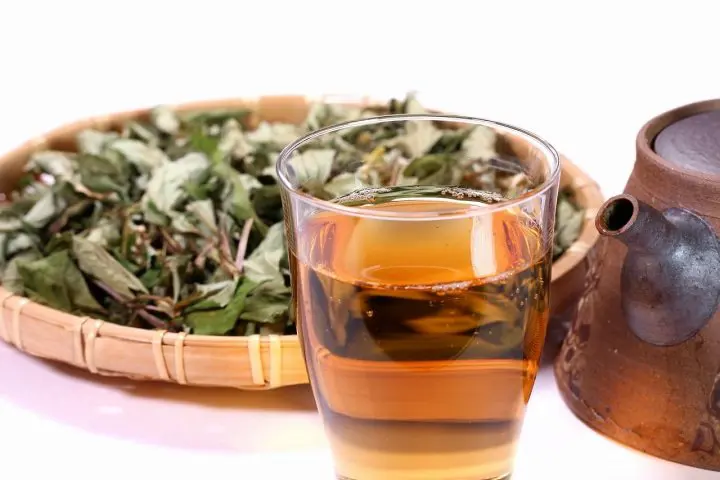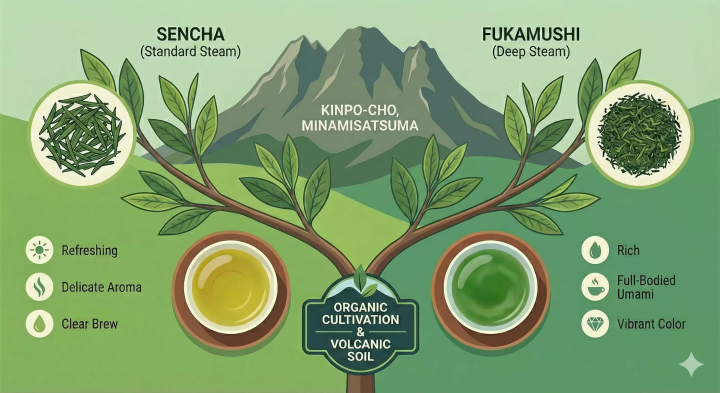Dokudami: Try a Soothing Cup of Japanese Herbal Tea

Among the many herbs available, one commonly used in Japanese herbal tea is dokudami or, alternatively called, chameleon plant. This article will introduce this medicinal herb and its many benefits.
Upon hearing the word "herb," we may immediately think of everyday herbs like mint or rosemary that assist us in daily life. Sometimes they are sold in specialty stores, incorporated in dishes as seasonings, or blended with tea. Some may even find it fashionable to use herbs since their use is found across many cultures.
However, it is also customary in Japan to use herbs since ancient times. Some of these "herbs" are actually weeds that grow along streets. However, some of these ordinary weeds actually have medicinal properties, lending their healing benefits to herbal teas.
In this article, we will introduce one such herb called dokudami.
Dokudami Can Be Found Everywhere
You can find dokudami, alternatively called chameleon plant, everywhere in Japan.

Whether you are in the mountains, tending your garden, or strolling along the sidewalk, you can easily spot dokudami growing there.
In other words, some of these herbs must be growing near you. It is distinguished by its dark green heart-shaped leaves. White flowers also bloom during the summer. However, this plant prefers to grow in dark places.
Did you manage to find one?
You'll likely spot small flowers nestled among the green leaves. It's easy to overlook the tiny white blossoms. But I encourage you to take a look closer.
At this point, you may have smelled a strange scent.
This unpleasant odor is not only coming from the flower, but the leaves are also giving off this stench.
This is why many people dislike having this herb growing in their garden. When dokudami quickly grow in the summer, it becomes a challenge to get rid of them thoroughly. This plant is very strong, so it tends to crop up quickly!
Despite its adorable appearance, dokudami is really disliked by many people.
Natural Medicinal Properties
In fact, dokudami is an herb with medicinal properties. It is also found in other countries, where it is utilized in various ways. Additionally, people have been using this herb for health since ancient times in Japan.
The kanji character for "doku" translates to "poison." But this doesn't mean that dokudami contains poison itself. It actually helps you remove such toxins from your body.
The easiest way to use dokudami's healing properties is to prepare it in a tea.

The effects of dokudami tea differ from each individual. For example, it can relieve constipation. Some even say that their skin's condition gets better when sipped before bed.
If constipation or skin troubles are on your mind, perhaps brewing a cup of dokudami could help alleviate these symptoms. But be careful not to drink too much at once, or you might get loose stools.
How to Make Dokudami Tea
It is easy to make a cup of dokudami tea. Here are the steps below.
- Take a few handfuls of dokudami.
- Carefully cut the herb.
- Clean it throughly. (If you're certain it's clean, then you can skip this step.)
- Dry the herb.
- Wait untill the herb is completely dry.
When the cut and cleaned herb have hardened, chop it into small pieces, and brew it in hot water like any regular tea.
Interestingly, the unpleasant odor disappears when dokudami is turned into dried tea.
Dokudami also grows from spring to autumn in Japan. The best time for picking and drinking the herb is when the adorable white flowers appear in early summer.
It is also delicious as a cold beverage with ice.
You Can Purchase Dokudami in Stores
Some readers may be unable to find dokudami growing in their neighborhood. Even in Japan, this thriving herb doesn't grow in the winter.
Fortunately, you can purchase it at drugstores or supermarkets when you need this tea. Since it's a common herb, dokudami herbal teas are also inexpensive.
All images provided by Pixta
MATCHAのやさしい日本語版の担当者です。普通の日本語をやさしい日本語に翻訳しています。
































![[Kagoshima] Overcoming 12 Years of Hardship: Walking through Minamisatsuma City, the sacred land where the monk Ganjin landed](https://resources.matcha-jp.com/resize/720x2000/2026/02/21-259481.webp)



